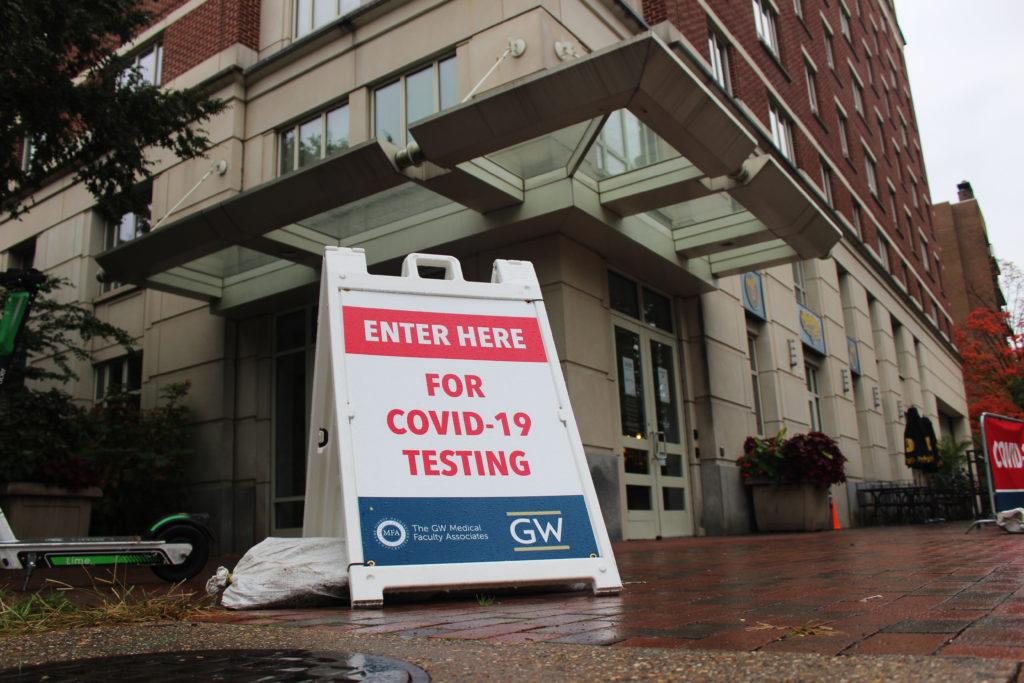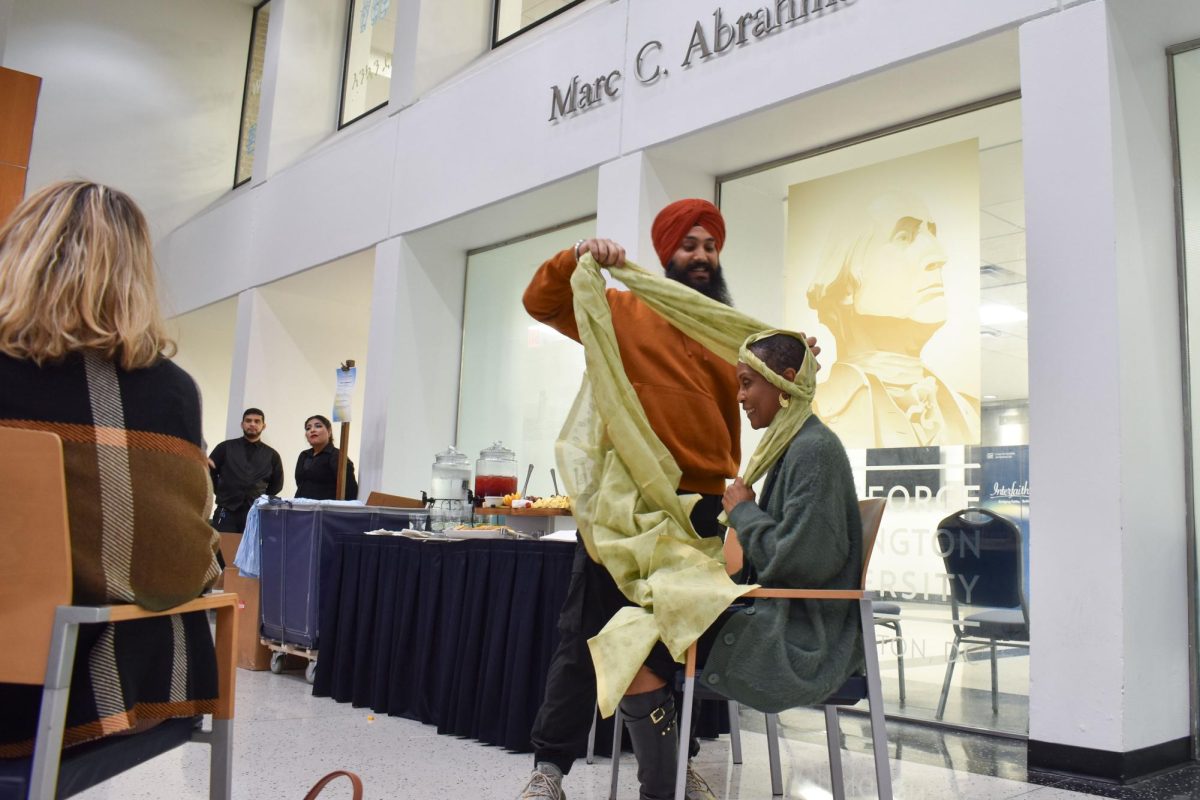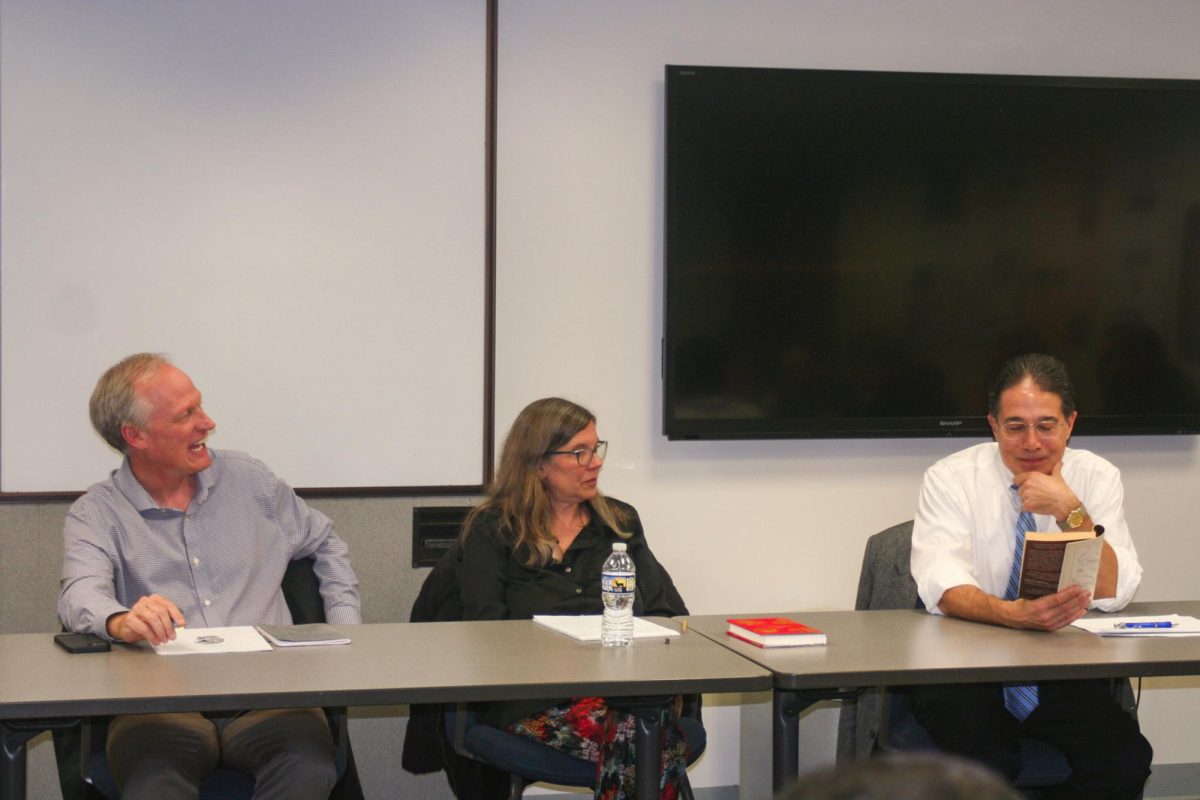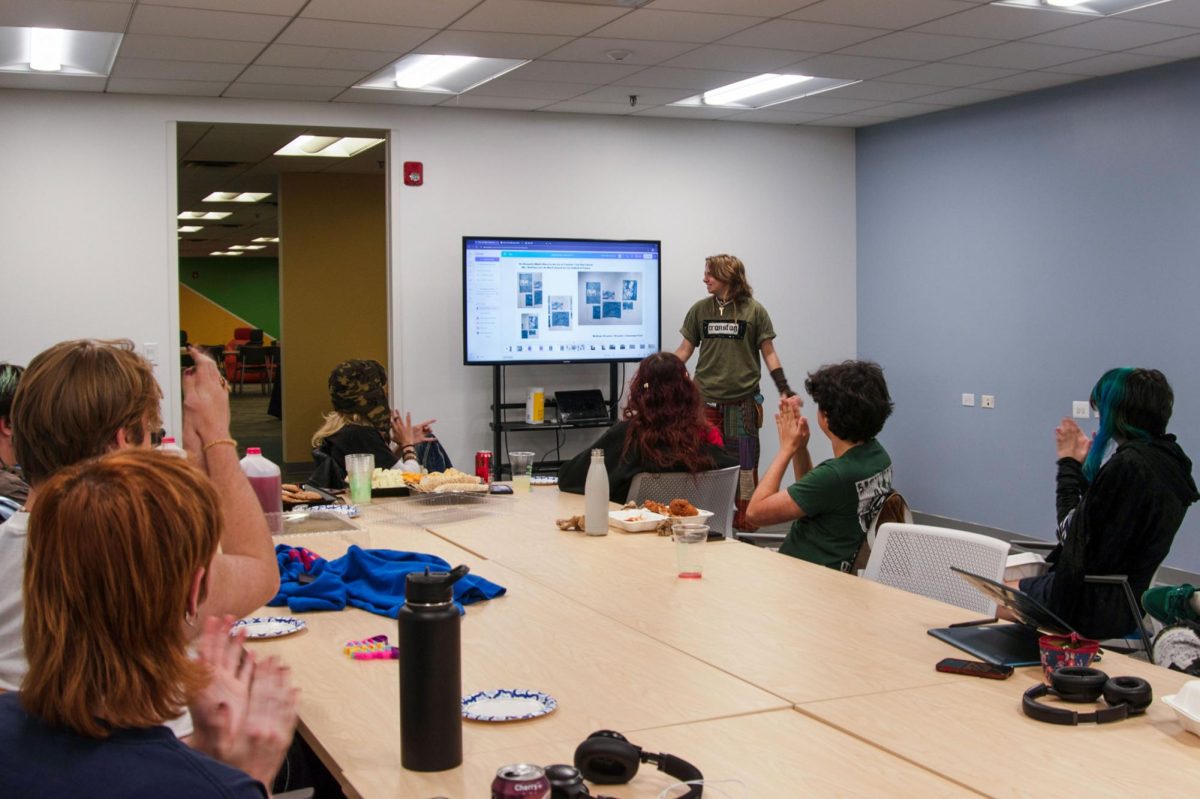GW’s in-house COVID-19 testing center has provided quick and “reliable” services to students living on and off campus, students who have been tested said.
About 500 students who were approved to live on campus are required to test weekly and submit a symptom report to the Colonial Health Center daily while off-campus GW community members are also allowed the free testing. Ten students who have used the University’s services said the testing centers have provided them with a “peace of mind” to see friends and carry out their daily activities without worrying about spreading COVID-19.
“It gives me a huge sense of safety, especially since the cases have been very low, and GW has been super strict about the once-a-week testing,” said sophomore Abigail Ingoglia, who is living on campus.
Ingoglia said GW offers multiple appointment windows, and the test itself takes about five minutes to complete, allowing her flexibility in receiving her weekly screening. But she said she is concerned with how long test results will take to be processed next semester if more students come on campus.
Administrators said last week that 1,500 students, in addition to those currently living on campus, will be allowed back on campus next semester.
Drew Amstutz, a junior living on campus, said he is a member of the University’s Back to Campus Committee, which advises officials on their Back to Campus Plan and COVID-19 testing protocols. He said the committee consists of department heads and student leaders who communicate daily with students to gauge which aspects of campus life should be improved.
He said the committee has worked to improve accessibility to tests. At the start of the semester, on-campus students needed to use a Calendly link to make appointments, but he said officials transitioned to a CHC portal following student feedback.
He added that students originally self-administered their COVID-19 nasal swab tests, but medical professionals are now administering the tests themselves to improve accuracy. Amstutz said the University’s testing program is its “greatest strength” during the pandemic.
“I hope that they will continue this model of bringing students into the decision-making rooms when they consider other aspects of their responses to the virus and that they will actively make changes to decisions being made, like they’re doing with testing,” Amstutz said.
Junior Lydia Burnett said she lives off campus, but her research position in the Science and Engineering Hall requires she get tested weekly.
“There are people who shop at the grocery stores, eat at the restaurants, walk and run in the same places as students, who aren’t associated with the University,” Burnett said in an email. “We have a responsibility to them to keep the community as a whole safe and healthy.”
Testing expanded in late September to offer free service to off-campus students and GW community members at the Smith Center, which was later moved to Shenkman Hall.
She said officials should not test GW community members in Shenkman because people need to enter and exit the screening area through the same set of stairs. She said a different location could decrease contact with people who could have contracted the virus.
“Symptomatic/exposed patients and asymptomatic patients are tested in the same room, which meant for me personally that I was more likely to be exposed while getting tested than anywhere else in my daily routine,” Burnett said. “In the Smith Center, at least we had one-way traffic, but in Shenkman, you had to go down the stairs and then back up.”
Sophomore Lily Vassalo, who lives off campus, said she rides horses professionally and has stayed overnight in a hotel on multiple occasions for shows around the DMV. She said she’s been tested twice at the University’s testing center and felt the staff were helpful and accommodating during a walk-in appointment.
“I’m from the south,” Vassalo said. “A lot of my friends are at [Florida State University], and they have cases all over the place, which is not good. And I think GW has definitely done a good job making testing not only accessible but at no cost to both students who are on campus and off campus.”
She said CHC nurses who administered the tests walked her through the screening process, which made her feel comfortable.
“It makes us feel better because we at least know that we can say to ourselves, we’ll get tested anytime we have to go travel for work and stay at a hotel room or we’ll get tested like once a month or something like that,” Vassalo said. “It’s always knowing that we can continue to get those results.”
Zachary Blackburn contributed reporting.








